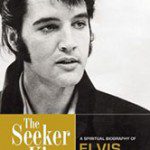Lectionary Reflections on The Second Sunday after the Epiphany
Sunday, January 19, 2014
Isaiah 49:1-7
Psalm 40:1-11
I Corinthians 1:1-9
John 1:29-42
What does it mean to be “chosen” by God? Images of vocation and call are often as problematic as helpful, personally and theologically. Often they are used to exclude some and elevate others and to assume a personal or national uniqueness that applies to oneself and one’s people but not to others. Moreover, is being “chosen” something unconditional, unilateral, and irrevocable? What would it mean to speak of a universality of vocation, accentuating freedom and interdependence rather than determinism and individualism?
Isaiah struggles with being chosen. He perceives that God has guided his pathways from his conception. His vocation as prophet is intentional, not accidental or random. Yet, if God has chosen him for this task, why does he feel like such a failure? Being chosen apparently doesn’t mean being successful in the world’s eyes or one’s own. God counters by saying that Isaiah has been thinking small – his plans have been too modest. He must make big plans and attempt great things, despite his apparent failure. God is not finished with the prophet; out of failure possibilities emerge that have world-shaping ramifications.
Isaiah does not give us a pattern of vocational success. Indeed, we must not abandon the statement that it is more important that we be faithful than successful. Yet, for Isaiah, fidelity means aiming high and planning big. He is not alone, God is working in his life and God’s vision is always more audacious than our own! The passage from Isaiah challenges us individually and congregationally: Are we thinking too small? Does God have bigger plans for us than we are currently imagining? What great adventure is around the corner for us and our congregation?
The Psalmist praises God for deliverance. Saved by divine grace, by God’s intervention in his life, the Psalmist is inspired to share good news. Grace leads to testimony. As long as he has breath, the Psalmist will proclaim the goodness of God. His life will be a witness to God’s steadfast love and faithfulness.
Paul’s first words to the contentious and wayward Corinthian community are words of affirmation and gratitude. As the letter unfolds, we will see how far from grace they have strayed. But, Grace has not strayed from them. There is hope, for God has called them as individuals and as a community: they are the body of Christ (chapter 12) and even though they have practiced destructive habits, the mind of Christ still courses within their cells and sinews.
Paul affirms that they have everything they need to prosper and serve God. They are not lacking in any spiritual gift, despite their imperfections. Perhaps, like Isaiah, their sense of failure is overwhelming them to the point that they are feeling God-forsaken and impotent. Paul reminds them that as a community, they have all the gifts they need to be a beacon in their community and to serve God. Paul’s words are apt for many congregations that doubt their ability to survive and make a difference. God’s call opens us to new possibilities and when we respond, we receive new divine insights and energies. What new visions await your congregation? What might happen if your congregation opened to God’s energy of abundance rather than feelings of scarcity?
The Gospel describes the beginning of Jesus’ public ministry. These ancient words also apply to our current spiritual landscape in which the church is often at best at the margins, if not totally irrelevant to many persons’ spiritual quests. Still others still have hope that the church can respond to their deepest needs. Jesus begins the dialogue with John’s disciples with a question, “What are you looking for?” This is a key question: we begin by listening and letting the “others” shape our ministry and mission. The Gospel is always relational, speaking to the deepest needs of the world around us. John’s disciples respond with, “Where are you staying?” In other words, “Where will we find what we are looking for?” And, so they walk on, moving together in response to Jesus’ invitation, “Come and see.”
When we say, at our congregations, “come and see” to seekers, we better have something to share that will change lives, our own and others. Jesus’ words call us to examine our ministries. People are looking for meaning; they are looking for a sense of vocation and something to which to their lives. Do we offer them the bread of life or business as usual? What unique transformative gift do we have to offer?
Each congregation has a unique vocation and gifts to offer in its particular setting. Like our own gifts, our vocations evolve and emerge as we interact with the world and discover new insights. What is our congregation’s gift to the larger world and to seekers waiting on the doorsteps? If we can provide bread for their journeys, then these seekers like Jesus’ first followers will respond with affirmation, “We have found the Messiah! We have found meaning and joy here!”
Today’s readings remind us that we have the resources to make a difference, to serve God, to find fulfillment, and to be partners in God’s vision of personal and global transformation. Let us think bigger than the past, let us aim toward God’s horizons. Let us do something beautiful for God.













